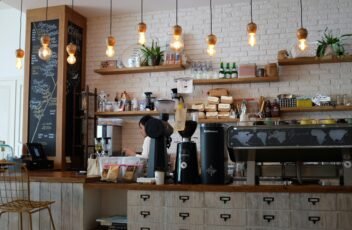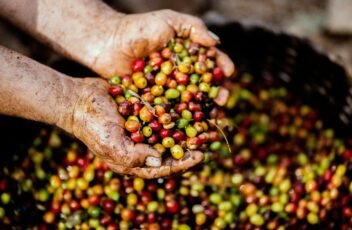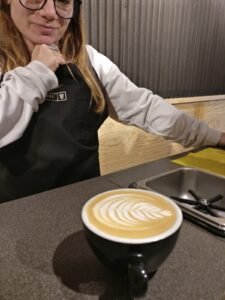At A Coffee & A Story, we are passionate about the world of coffee — not just as a drink, but as a window into stories, cultures, and human connections. But today we want to talk about something uncomfortable: the hypocrisy behind the specialty coffee industry. Because while we love coffee, we also believe it’s time to stop romanticizing an industry that, in many cases, exploits the very people who make it possible.
Specialty coffee is sold as a premium product, full of promises of quality, sustainability, and fairness. But behind those elegant labels and poetic flavor descriptions lies a much less glamorous reality. A reality where coffee growers — the very heart of the industry — struggle to survive, while big corporations and trendy coffee shops line their pockets.
Coffee as an Inner and Outer Journey
We can see coffee as a journey — not just a physical journey through coffee-producing countries, but also an inner journey. Every sip is an opportunity to reflect, to connect with ourselves and with others. But this journey wouldn’t be possible without the hands and the work of the coffee growers, the entrepreneurs who import that coffee, and the baristas who transform it into the “aesthetic” drink you post on Instagram.
However, this journey is disrupted by an imbalance that begins at the root. Coffee growers are under pressure to meet ever-higher standards. Innovative processes like fermented coffees or experimental cultivation methods can lead to big rewards — but also to big risks. If the experiment fails, growers may be left with entire harvests they can’t sell, putting their livelihood and their families’ well-being at risk.
Meanwhile, in the West, we consumers often have the hypocrisy of paying high prices for “specialty” coffee without questioning where it comes from or who really benefits — because we see that it’s labeled “specialty.” Trendy cafés are filled with people posting photos of their artisanal lattes, but few stop to think about the hands that grew those beans.


The Stories Behind the Cup That No One Tells
These cafés often imitate one another, offering little in terms of cultural value, instead attracting wealthier tourists. This drives up prices in local neighborhoods, increasing rent and utilities, and contributing to gentrification.
Even when cafés generate higher income, operating costs keep profit margins tight, limiting the potential for growth in the industry. As a result, “specialty coffee” has increasingly become a marketing term — a mask for hypocrisy used to justify higher prices without necessarily delivering the “quality” the industry originally intended.
These narrow margins also affect the workforce. Staff training often takes a backseat. Although circumstances vary, baristas frequently lack the opportunity or motivation to pursue long-term careers in coffee due to low wages and limited prospects for growth. The industry’s failure to invest in its workers results in a workforce that struggles to find incentives to deepen their knowledge or passion for coffee.
The baristas who do find opportunities often participate in coffee competitions at specialty coffee events. But these events mainly attract consumers and entrepreneurs, leaving out the coffee growers. As a result, the disconnect and hypocrisy within the specialty coffee industry persist — from the farmers who produce the beans to the baristas who serve the final cup.

A Call for Awareness, Not Comfort
At A Coffee & A Story, we don’t want you to keep consuming specialty coffee without asking questions. We want you to stop and think before you buy: Who really benefits from that coffee you enjoy so much? And at what cost?
Coffee isn’t just a drink; it’s the product of a system that, in many cases, puts profits before people. It’s time we started listening to all parts of that story — not just the parts that fit nicely into our Western bubble.
Have you ever asked yourself who really benefits from that coffee you love so much?